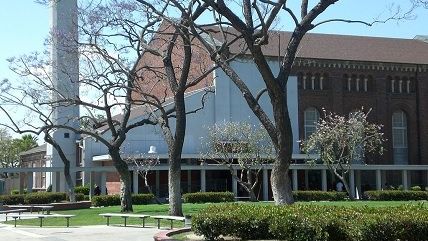California Spending Big to Halt School Reform Lawsuit Backed by Republicans and the ACLU
The state is challenging, rather than resolve, a lawsuit brought by low-income students who say they are deprived of their right to a quality education.

President Barack Obama famously quipped to congressional leaders in 2009 that "elections have consequences"—words he might now regret given the likely consequences of the GOP's big congressional gains in November. But regardless of party or politician, there's no doubt elections often have clear-cut public-policy results.
One of the few hotly contested California races from November was for the little-known position of superintendent of public instruction, the state's highest elected education official. Charter-schools executive Marshall Tuck said a win by union-allied Tom Torlakson would have ill consequences—namely, the state would continue to challenge a lawsuit brought by low-income students who say they are deprived of their right to a quality education.
Torlakson won a surprisingly strong victory and the Department of Education now is doing exactly what Tuck said it would do: continue to fight—rather than resolve—the case, known as Cruz v. the State of California. The Brown administration recently informed legislative leaders of a budget adjustment that will allow it to spend another $3.35 million on outside attorneys to continue the case.
Republicans highlighted the expenditure last week in their reaction to Democratic Gov. Jerry Brown's newly released budget proposal, but their real problem isn't the money (a small amount in a $113-billion general fund), but the policy. Assembly Republican Leader Kristin Olsen of Modesto said at a press briefing last week she objected to a lawsuit to "fund lawyers to fight kids."
Instead of investing in outside lawyers to protect the status quo, her office called on the state to spend its time and money fixing the problems that triggered the lawsuit. Olsen has a point when one looks closely at the situation these plaintiffs faced. It's troubling that these kids—students at seven public schools in the Bay Area and Southern California—needed to go to court to resolve some basic school-related problems.
In October, Alameda County Superior Court Judge George Hernandez Jr. issued a temporary restraining order and agreed that without an immediate fix the students in one particular school "will suffer serious and irreparable harm." In Jefferson High School in Los Angeles, a new computer system led to a class-scheduling disaster. Students spent hours waiting in the auditorium, those who received schedules "were assigned to inappropriate classes" and students often were sent to home classes "against their will, without parental consent, for the convenience of Jefferson," he wrote.
But the problems go beyond one school and the case is designed to prod the state into coming up with an emergency process that kicks in when school districts can't meet their most basic responsibilities.
"For these students, consigned to a series of schools that perpetually fail to deliver education, hope fades and potential is crushed," according to the complaint filed by the ACLU of Southern California (and others). "The loss of educational opportunity does not occur in any dramatic, headline-making way, but rather inexorably through the cumulative and debilitating effects, over time … ."
ACLU legal counsel David Sapp reminded me the $3.35 million is discretionary — officials could spend it on a solution rather than a legal battle.
It's not every day the state's GOP caucus is championing a legal case brought by the ACLU, but education reform looks like a Republican priority this year. "It's our caucus' position that it's time to fix the root of the problem and give kids in every neighborhood a quality education," said Amanda Fulkerson, Olsen's press secretary. "In the coming weeks we will release a bill package containing common-sense reforms that directly address having a quality school for every kid and a great environment for every teacher."
The other big school-reform case is known as Vergara. The state is fighting a June decision in Los Angeles Superior Court declaring the state's teacher job protections unconstitutional because they make it nearly impossible to fire incompetent teachers and deprive some students of quality teaching.
Republican gubernatorial candidate Neel Kashkari made Vergara a key theme in his campaign, but he lost the election by 20 points. At his press conference on Friday, Gov. Brown said he was more concerned about teacher recruitment than changing the tenure system. There's no surprise there. Elections have consequences.


Show Comments (32)